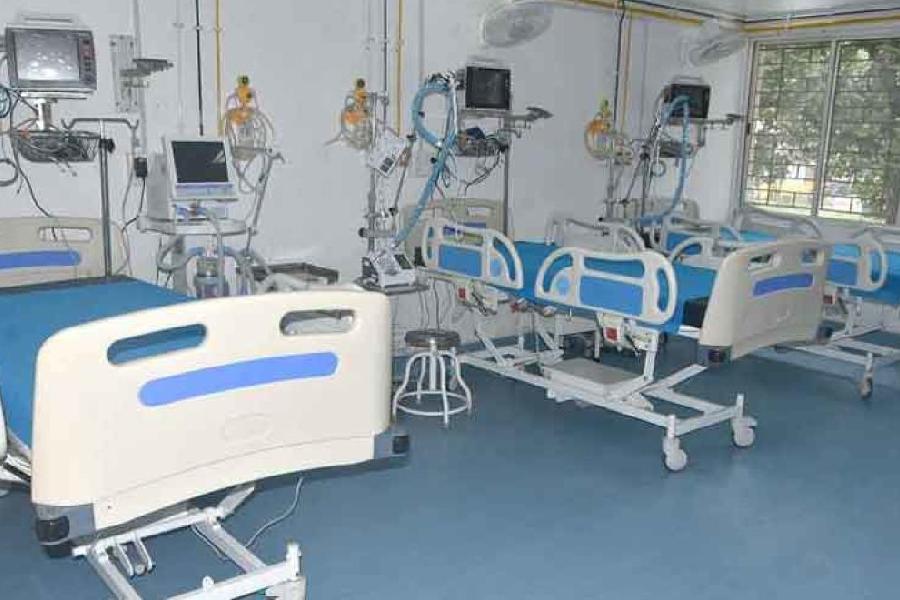A business acquisition of existing hospitals will not add beds to the city’s stretched healthcare immediately, but new competition promises scope for improvement in efficiency and patient services and throws a challenge to standalone units, said heads of several Calcutta hospitals.
Manipal Hospitals on Wednesday announced the acquisition of 84 per cent stake in four hospitals of the AMRI group, three of which are in Calcutta.
As part of the deal, the Bangalore-headquartered Manipal Hospitals will run the AMRI units in Dhakuria, Mukundapur and Salt Lake, and the one in Bhubaneswar.
According to sources, the deal amounts to around Rs 2,300 crore.
The Emami Group, which originally owned AMRI Hospitals, continues to hold 15 per cent stake in the hospitals. The Bengal government has around 1 per cent stake.
“The new conglomeration is supposed to result in changes in terms of operational efficiency, and the quality of service and clinicians. A bigger group like Manipal Hospitals will ensure technology-driven service transformations around patient centricity, upgrade of infrastructure and addition of high-end equipment,” said the head of a hospital chain in Calcutta.
“Eastern India requires good facilities and the new acquisition is welcome because good healthcare chains are coming and this will improve the health infrastructure. They will bring with them their own capabilities,” said Nandakumar Jairam, chairman, Medica Group of Hospitals.
He said there was also a need for more beds as well and hence standalone hospitals should also survive. “There is enough space for everybody in the market. Throughout the country there is a need for more beds, particularly in second-tier cities,” said Jairam.
Temasek, a Singapore-based investment firm that now has majority stake in Medica, also has 59 per cent stake in Manipal Hospitals.
Some of the hospital CEOs said the main challenge for standalone hospitals would be attracting funds.
“Hospital chains will attract more investors and funds compared to standalone units. They can raise money from the market. The challenge for standalone hospitals is competing in terms of infrastructure and capital purchase,” said Sudipta Mitra, chief executive of Peerless Hospital.
“One way for standalone hospitals to survive is to expand and buy smaller hospitals in Calcutta or other towns,” he said.
The CEO of one hospital said big chains would invest more in equipment. A robot for knee replacement surgery costs around Rs 6 crore. If a chain of hospitals is buying several such robots for multiple hospitals, the cost would come down, he said.
“A big group will also bring in clinical capabilities as treatment outcomes are far better. This leads to viability as bed occupancy time becomes shorter. All healthcare providers will have to gear up to that level, which is difficult for standalone hospitals in the long run,” said the CEO.
He said another challenge for standalone units is absorbing patients under various government health benefit schemes, which demand treatment at lower costs.
“The bigger chains can absorb the losses they incur from providing subsidised treatment in a much better
manner. But it is difficult for a 100-bed hospital to do so,” he said.
“The state government owes a hospital in Howrah several crores of rupees under the Swasthya Sathi scheme. This puts burden on the hospital’s developers,” the hospital executive said.
Some of the standalone hospitals said they would have to face the challenge.
“The AMRI hospitals were doing well and will do well under the new leadership. Manipal has a different approach to running hospitals and they are supposed to bring the latest technology and efficiency,” said Pradip Tondon, CEO, Belle Vue Clinic.
“A chain of hospitals with a centralised purchase system will have an edge over standalone hospitals. They have the power of negotiation. We standalone hospitals have to face the competition and have to find our own ways and means to counter these threats,” Tondon said.
